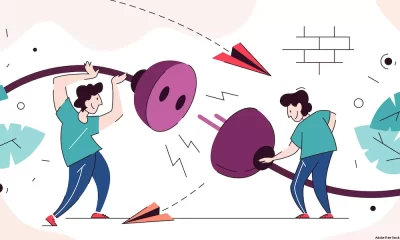Management
Business & Economic Performance

The ongoing challenge for business owners is staying ahead of anything that negatively affects their company and trading conditions. There is no time for navel-gazing.
Analyzing the PEST (political, economic, social, and technological), external factors usually offer evidence to support new goals and allow a business to plan ahead. Hence, they get a head start on any event that can be a game-changer like Covid-19.
At BusinessBlogs, we often write about technology, how it has revolutionised our lives, and what we do commercially; however, other external factors also play a core role in changing the face of business.
Economic, political, or social change is as disruptive to business as technology, so in this blog article, we examine potential obstacles that may affect business in the short term.
Economy and Business Are Entwined
You may be wondering how the state of the economy impacts business performance. Economic conditions influence business in three core ways: costs, access to funding, and customer demand.
Customer Demand
In times of economic growth, consumers usually have more money to spend. This increased purchasing power results in higher demand for products and services, leading to increased business sales and profits. Conversely, consumers reduce spending during economic downturns, leading to decreased demand. This decrease in demand can hurt companies’ sales and profitability.
What about costs? What happens to the cost of products and expenses, and how does the change impact business?
Costs
The state of the economy significantly impacts businesses’ expenses. For instance, in times of high inflation, the cost of labour, raw materials, and other resources may increase, reducing profit margins. On the other hand, during deflationary periods, businesses may benefit from lower costs, potentially improving their profitability.
Finally, we know businesses need access to finance to cover shortfalls and reinvestment, so what happens to access to business funding?
Funding
Economic conditions have a considerable impact on businesses’ ability to access financing. During economic growth, banks are more likely to lend money, which can aid businesses in expanding or starting new projects. However, banks are more hesitant to lend during recessions, making it more challenging for companies to secure funding.
State Of The Economy
According to a 2024 Reuters report, the IIF stated that the global economy is withstanding the volatility in borrowing costs, improving investor sentiment. That’s got to be good for business confidence. Unless you look closely at the rising level of global debt, which is around $313 trillion, it is a new high.
Companies can make well-informed decisions about their operations and strategies by comprehending how the state of the economy can impact their business. It can assist them in getting ready for both favourable and unfavourable times and ultimately enhance their likelihood of success in the long haul.
Services
Trade wars are still a thing, and services are one area of globalisation that has not been affected. Global services trade is expected to hit $7 trillion, about a third of international merchandise trade.
Top Exporters of Global Services
The five big players in global services are China, France, Germany, the UK, and the US. China recently took over fifth place from the Netherlands. Here is a list of the top 10 countries.
- USA (14.3% of global total)
- UK (6.5%)
- Germany (5.7%)
- France (5%)
- China (4.6%)
- Netherlands (4.2%)
- Ireland (3.5%)
- India (3.5%)
- Japan (3.3%)
- Singapore (3.2%)
Economic Growth
In PWC’s article, global trade was predicted to grow by 3.2 per cent in 2020, with all major economies growing due to favourable financial conditions. Did you know China was expected to grow at around 6 per cent, equivalent to adding that of Saudia Arabia to the world’s economy? Accurate, and regarding global trade leaders, India’s rise is on a trajectory to become the world’s third-largest economy behind China and the USA by 2030. So what did happen? COVID-19 curtailed growth, turning an increase into a fall, albeit not as much as predicted. The result was -5.3%, with a rebound expected in 2021.
What’s happening today in 2024? The WTO said it expects modest growth.
The 0.8% forecast for world trade in 2023 represents a downward revision of 0.9 percentage points from the previous forecast of last April.
Jobs
Good news on the jobs front, with 10 million new jobs expected from the G7 and emerging economies. Though China and Russia’s workforce bucks the trend with a shrinking workforce.
Population
Will the population rise? Of course, we’re living longer, so we’re an ageing population, with Japan leading the way as the ‘greyest’ country. Thinking of starting a business in 2021? Consider what you can do for the baby boomers and retirees.
Summary
Globally, businesses and economies are experiencing unusual trading conditions. A top priority is nimbleness, i.e., Trading nations need to be quick to change as markets and economies demand it.




